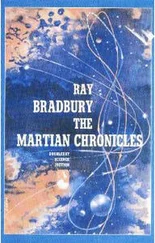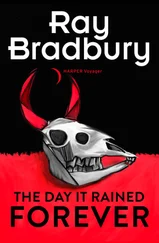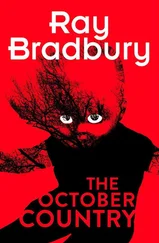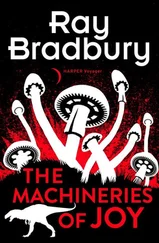The train curved. His head lolled as if his neck had been broken.
“I’ll tell you what you’re dying from!” she whispered. “You suffer a disease—of people! ”
His eyes popped wide, as if he had been shot through the heart. She said:
“The people on this train are killing you. They are your affliction.”
Something like a breath stirred behind the shut wound of the man’s mouth.
“Yesssss.… ssss.”
Her grip tightened on his wrist, probing for some pulse:
“You are from some middle European country, yes? Somewhere where the nights are long and when the wind blows, people listen ? But now things have changed, and you have tried to escape by travel, but…”
Just then, a party of young, wine-filled tourists bustled along the outer corridor, firing off their laughter.
The ghastly passenger withered.
“How do … you …” he whispered, “… know.… thissss?”
“I am a special nurse with a special memory. I saw, I met, someone like you when I was six—”
“Saw?” the pale man exhaled.
“In Ireland, near Kileshandra. My uncle’s house, a hundred years old, full of rain and fog and there was walking on the roof late at night, and sounds in the hall as if the storm had come in, and then at last this shadow entered my room. It sat on my bed and the cold from his body made me cold. I remember and know it was no dream, for the shadow who came to sit on my bed and whisper… was much… like you.”
Eyes shut, from the depths of his arctic soul, the old sick man mourned in response:
“And who … and what … am I?”
“You are not sick. And you are not dying … You are —”
The whistle on the Orient Express wailed a long way off.
“—a ghost,” she said.
“Yesssss!” he cried.
It was a vast shout of need, recognition, assurance. He almost bolted upright.
“Yes!”
At which moment there arrived in the doorway a young priest, eager to perform. Eyes bright, lips moist, one hand clutching his crucifix, he stared at the collapsed figure of the ghastly passenger and cried, “May I—?”
“Last rites?” The ancient passenger opened one eye like the lid on a silver box. “From you? No.” His eye shifted to the nurse. “ Her! ”
“Sir!” cried the young priest.
He stepped back, seized his crucifix as if it were a parachute ripcord, spun, and scurried off.
Leaving the old nurse to sit examining her now even more strange patient until at last he said:
“How,” he gasped, “can you nurse me ?”
“Why—” she gave a small self-deprecating laugh. “We must find a way.”
With yet another wail, the Orient Express encountered more mileages of night, fog, mist, and cut through it with a shriek.
“You are going to Calais?” she said.
“And beyond, to Dover, London, and perhaps a castle outside Edinburgh, where I will be safe—”
“That’s almost impossible—” She might as well have shot him through the heart. “No, no, wait, wait!” she cried. “Impossible … without me! I will travel with you to Calais and across to Dover.”
“But you do not know me!”
“Oh, but I dreamed you as a child, long before I met someone like you, in the mists and rains of Ireland. At age nine I searched the moors for the Baskerville Hound.”
“Yes,” said the ghastly passenger. “You are English and the English believe! ”
“True. Better than Americans, who doubt . French? Cynics! English is best. There is hardly an old London house that does not have its sad lady of mists crying before dawn.”
At which moment, the compartment door, shaken by a long curve of track, sprang wide. An onslaught of poisonous talk, of delirious chatter, of what could only be irreligious laughter poured in from the corridor. The ghastly passenger wilted.
Springing to her feet, Minerva Halliday slammed the door and turned to look with the familiarity of a lifetime of sleep-tossed encounters at her traveling companion.
“You, now,” she asked, “who exactly are you ?”
The ghastly passenger, seeing in her face the face of a sad child he might have encountered long ago, now described his life:
“I have ‘lived’ in one place outside Vienna for two hundred years. To survive, assaulted by atheists as well as true believers, I have hid in libraries in dust-filled stacks there to dine on myths and moundyard tales. I have taken midnight feasts of panic and terror from bolting horses, baying dogs, catapulting tomcats … crumbs shaken from tomb lids. As the years passed, my compatriots of the unseen world vanished one by one as castles tumbled or lords rented out their haunted gardens to women’s clubs or bed-and-breakfast entrepreneurs. Evicted, we ghastly wanderers of the world have sunk in tar, bog, and fields of disbelief, doubt, scorn, or outright derision. With the populations and disbeliefs doubling by the day, all of my specter friends have fled. I am the last, trying to train across Europe to some safe, rain-drenched castle-keep where men are properly frightened by soots and smokes of wandering souls. England and Scotland for me!”
His voice faded into silence.
“And your name?” she said, at last.
“I have no name,” he whispered. “A thousand fogs have visited my family plot. A thousand rains have drenched my tombstone. The chisel marks were erased by mist and water and sun. My name has vanished with the flowers and the grass and the marble dust.” He opened his eyes.
“ Why are you doing this?” he said. “ Helping me?”
And at last she smiled, for she heard the right answer fall from her lips:
“I have never in my life had a lark .”
“Lark!?”
“My life was that of a stuffed owl. I was not a nun, yet never married. Treating an invalid mother and a half-blind father, I gave myself to hospitals, tombstone beds, cries at night, and medicines that are not perfume to passing men. So, I am something of a ghost myself, yes? And now, tonight, sixty-six years on, I have at last found in you a patient, magnificently different, fresh, absolutely new. Oh, Lord, what a challenge. A race! I will pace you, to face people off the train, through the crowds in Paris, then the trip to the sea, off the train, onto the ferry! It will indeed be a—”
“Lark!” cried the ghastly passenger. Spasms of laughter shook him.
“Larks? Yes, that is what we are!”
“But,” she said, “in Paris, do they not eat larks even while they roast priests?”
He shut his eyes and whispered, “Paris? Ah, yes.”
The train wailed. The night passed.
And they arrived in Paris.
And even as they arrived, a boy, no more than six, ran past and froze. He stared at the ghastly passenger and the ghastly passenger shot back a remembrance of antarctic ice floes. The boy gave a cry and fled. The old nurse flung the door wide to peer out.
The boy was gibbering to his father at the far end of the corridor. The father charge along the corridor, crying:
“What goes on here? Who has frightened my—?”
The man stopped. Outside the door he now fixed his gaze on this ghastly passenger on the slowing braking Orient Express. He braked his own tongue. “—my son,” he finished.
The ghastly passenger looked at him quietly with fog-gray eyes.
“I—” The Frenchman drew back, sucking his teeth in disbelief. “Forgive me!” He gasped. “Regrets!”
And turned to run, shove at his son. “Trouble-maker. Get!” Their door slammed.
“Paris!” echoed through the train.
“Hush and hurry!” advised Minerva Halliday as she bustled her ancient friend out onto a platform milling with bad tempers and misplaced luggage.
Читать дальше









